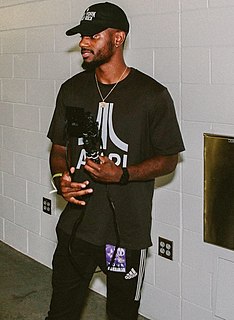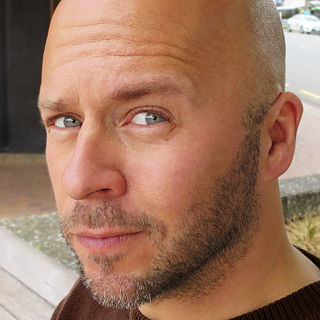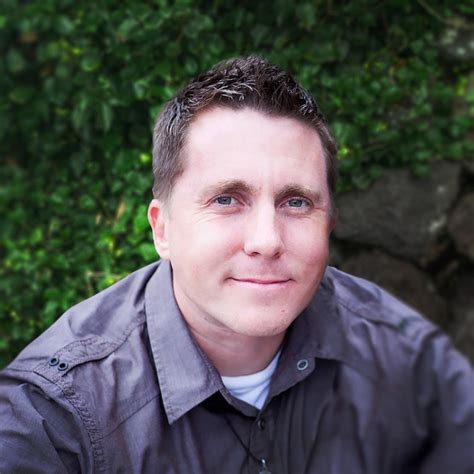A Quote by Gary Vaynerchuk
Related Quotes
I was pretty realistic to people about what we could get done, and the situation we were in, and trying to tamp down expectations. If you listen to my stump speeches, if you listen to what I said at Grant Park, I kept on saying, "Look, this is not just about me, this is not going to happen in one year, or one term, or even one presidency." And we tried to layer into everything we were saying a sense of hope, but also realism.
Beyond that, it gets down to the nuts and bolts of discipline - not a tradition or genre, I don't care about that, actually - but discipline in the sense of just working on music and working on thinking about music. It doesn't matter if it's jazz or not. It's about how we listen, how we interact, how we guide our attention when we're listening, and how we can refine what we're doing musically.
Steve Jobs gave a small private presentation about the iTunes Music Store to some independent record label people. My favorite line of the day was when people kept raising their hand saying, "Does it do [x]?", "Do you plan to add [y]?". Finally Jobs said, "Wait wait - put your hands down. Listen: I know you have a thousand ideas for all the cool features iTunes could have. So do we. But we don't want a thousand features. That would be ugly. Innovation is not about saying yes to everything. It's about saying NO to all but the most crucial features.
I love saying 'yes' and I love saying 'please.' Saying 'yes' doesn't mean I don't know how to say no, and saying 'please' doesn't mean I am waiting for permission. 'Yes please' sounds powerful and concise. It's a response and a request. It is not about being a good girl; it is about being a real woman.
I suspect that the most basic and powerful way to connect to another person is to listen. Just listen. Perhaps the most important thing we ever give each other is our attention And especially if it's given from the heart. When people are talking, there's no need to do anything but receive them. Just take them in. Listen to what they're saying. Care about it. Most times caring about it is even more important than understanding it. Most of us don't value ourselves or our love enough to know this.
Listening is terribly important if you want to understand anything about people. You listen to what they say and how they say it, what they share and what they are reticent about, what they tell truthfully and what they lie about, what they hope for and what they fear, what they are proud of, what they are ashamed of. If you don't pay attention to other people, how can you understand their choices through time and how their stories come out?
I give myself homework when I have an audition. I give myself goals, and that's how I check how I'm doing. It can be something simple like 'listen,' or 'find your feet.' And then afterward it's an assessment, so in a way it's not about booking the job or not. It's about what I learned as an actor about that character.
I read the story and reread the story, but I still could not find the universality that the little Irishman had spoken of. All I saw in the story was some Irishmen meeting in a room and talking politics. What had that to do with America, especially with my people? It was not until years later that I saw what he meant ... I began to listen, to listen closely to how they talked about their heroes, to how they talked about the dead and how great the dead had once been. I heard it everywhere.



































